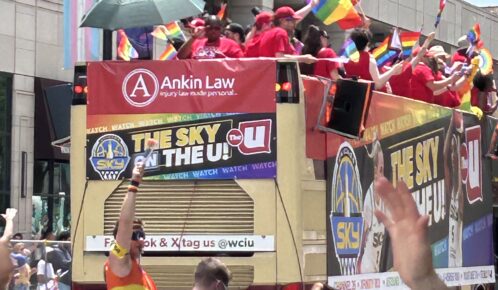Whether an employee can claim workers’ comp for a contagious disease depends on the nature of the work. Thanks to occupational disease statutes, employees who contract contagious diseases in the workplace are covered under workers’ compensation benefits. Under some circumstances, illnesses caused by viruses or bacteria—known as communicable diseases—qualify as occupational illnesses. The difficulty in pursuing claims for communicable diseases, however, lies in proving that the disease or illness was acquired in the workplace.
Table of Contents
The Ebola scare of 2014 alerted many workers to the worries of contagious and sometimes deadly diseases present in healthcare facilities. This was of the greatest concern to emergency medical technicians – ambulance personnel – as well as ER and other hospital staff. But largely irrational fears were generated across the country toward anyone from or who recently visited the most afflicted regions of Africa.
That wave of hysteria has largely passed, but it does raise important questions about what happens when a person contracts a contagious disease in the workplace, particularly an illness that leads to a prolonged inability to work. Who is responsible for the loss of income to that employee if he or she cannot work for an extended period of time? Would the situation warrant hiring a workers’ compensation attorney?
How to Determine If Workplace Illnesses Qualify for a Workers’ Compensation Claim
In general terms, there are two tests that can help determine if an illness or disease is a compensable through workers’ compensation (meaning, these factors are what determine eligibility):
- The condition must be found to arise out of the occupation, acquired in the course and scope of employment. In other words, the illness had to be acquired at or from work, not while vacationing or at home.
- The illness or disease had to arise out of conditions “peculiar” to the work, that being infected would necessarily be due to the nature of the workplace.
Communicable diseases in the workplace involve complicated requirements and gray areas. Employers are required by The General Duty Clause of the Occupational Safety and Health Act (OSHA) to provide a healthy and safe working environment. An employer can require that employees inform them if they have a communicable disease that could be transmitted in a workplace setting. But the employer is forbidden from divulging patient-specific information due to privacy policies of the Americans with Disabilities Act. Because the employer is ultimately responsible for medical evaluation and treatment of other employees who acquire the illness while at work, the employer has incentive to prevent transmission of the illness.
Claiming Workers’ Comp for a Contagious Disease is Complicated
The Ebola infections in Texas in 2014 are more complicated than the usual workers comp cases because there was potential wrongdoing on the part of the hospital (to be determined in court). But the transmission of MRSA (a bacterial skin infection) would qualify if employees have skin-to-skin contact with patients, customers or co-workers. What would probably not qualify, for example, would be the acquisition of a sexually transmitted disease from a co-worker (except, perhaps, in the adult movie industry).
A Workers’ Compensation Lawyer Can Help You Win Your Case
Employees who contract contagious diseases at work may qualify for compensation for lost wages, medical bills, prescriptions, and long term care. Because of these many variables, an affected employee is always advised to contact a workers’ compensation injury lawyer in Chicago to sort his or her claim out.
Other Illinois Workers’ Compensation Posts
- Can Workers’ Compensation Death Benefits Be Granted to a Decedent’s Estate?
- How Long Does It Take Workers’ Comp to Approve Surgery?
- Workers’ Compensation Investigations and What They Look for
- What Questions Are Asked at a Workers’ Comp Hearing?



